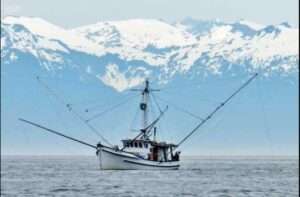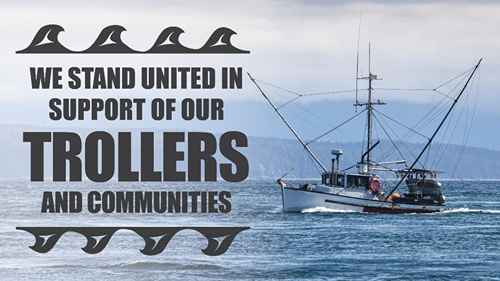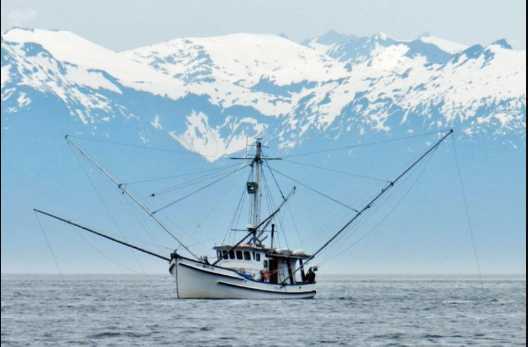
JUNEAU – The Native American Rights Fund (NARF) has filed an amicus brief before the Ninth Circuit Court of Appeals (Ninth Circuit) on behalf of the Southeast Alaska Native Coalition in the Wild Fish Conservancy vs. Jennifer Quan, et al case.
The coalition is made up of 16 sovereign tribes, 7 Alaska Native Village corporations, Sealaska Corporation, and the Alaska Native Brotherhood and Alaska Native Sisterhood Grand Camp.
The amicus brief urges the Ninth Circuit to reverse the partial vacatur of the Incidental Take Statement and cites the lower court ignored how a vacatur would affect Southeast Alaska’s Indigenous communities.
Allowing the partial vacatur to stand, which would effectively close the Southeast Alaska Chinook commercial troll fishery, would have disastrous economic and cultural effects on Southeast Alaska communities and a disproportionate impact on Southeast Alaska’s tribal citizen trollers and tribal communities.
This case, if not reversed, would bring to light another historical example of inequitable treatment of Indigenous people. The amicus brief cites that Indigenous communities have often been forced to bear the brunt of conservation efforts in the wake of ecological degradation and other anthropogenic pressures. The heaviest burdens of uncertain conservation efforts should not be allowed to fall on the shoulders of Southeast Alaska’s tribal citizen trollers, their families, nor the communities that depend on them.
In late June 2023, the Ninth Circuit Court issued an expedited ruling in the Wild Fish Conservancy vs. Jennifer Quan, et al case, which stopped the Western District of Washington’s order from going into effect and allowed the Chinook salmon trolling season to open on July 1 as scheduled.
Southeast Alaska’s troll fleet and coastal communities face unprecedented uncertainty and risk due to the Wild Fish Conservancy’s misguided lawsuit against the National Oceanic and Atmospheric Administration (NOAA), National Marine Fisheries Service (NMFS) concerning its 2019 Biological Opinion (BiOp) along with the Incidental Take Permit for Southeast Alaska’s king salmon troll fishery.[content id=”79272″]
Trolling is a hook-and-line fishery, not to be confused with the egregious trawling industry, and is a longstanding, sustainable way of life for our tribal citizens. There are nearly 600 commercial power and hand troll permits held by tribal citizens, and the fishery is central to our region and the sustainability of our communities.
Closing the commercial Chinook salmon troll fishery would strip away critical income from tribal citizen trollers. The Chinook harvest is estimated to make up 44% of the income of trollers.A 2019 study also found the Southeast Alaska troll fleet provides an $85 million economic impact for the Southeast Alaska economy. The impacts would be far reaching and include harm to our region’s fishing fleet, seafood processors, and the maritime and seafood support sectors.
The amicus brief cites those financial losses and subsequent reductions in employment opportunities would likely spur outmigration from the region, causing both economic and cultural harm.
Fishing is part of our identity and way of life in Southeast Alaska and losing access to these practices will result in a break from that identity and history. If fishing is closed for the long term, the loss of knowledge becomes permanent.
“The very future and health of our tribes and communities is being threatened by this lawsuit. There are direct cultural consequences and cascading effects if our Chinook salmon troll fishery is closed. The closing of the troll fishery for even one season can cause irreparable breaks in intergenerational knowledge,” said Tlingit & Haida President Richard Chalyee Éesh Peterson. “These are cultural harms that cannot be remedied.”
Southeast Alaska’s tribes and Alaska Native corporations, the Alaska Congressional Delegation, State of Alaska, the Washington Department of Fish and Wildlife, and many local municipalities and communities continue to stand in support of Southeast Alaska trollers.
Southeast Alaska Native Coalition Amici:
Alaska Native Brotherhood/Alaska Native Sisterhood Grand Camp
Angoon Community Association
Central Council of the Tlingit & Haida Indian Tribes of Alaska
Chilkat Indian Village
Chilkoot Indian Association
Craig Tribal Association
Haida Corporation
Hoonah Indian Association
Huna Totem Corporation
Kake Tribal Corporation
Ketchikan Indian Community
Klawock Cooperative Association
Klawock Heenya Corporation
Kootznoowoo Incorporated
Metlakatla Indian Community
Organized Village of Kake
Organized Village of Kasaan
Petersburg Indian Association
Sealaska Corporation
Shaan Seet Incorporated
Shee Atiká Incorporated
Sitka Tribe of Alaska
Skagway Traditional Council
Wrangell Cooperative Association
Yakutat Tlingit Tribe
###
[content id=”79272″]







